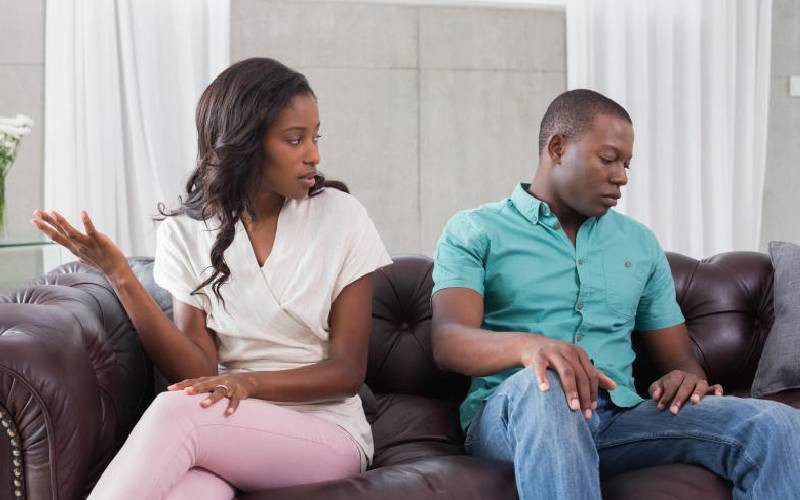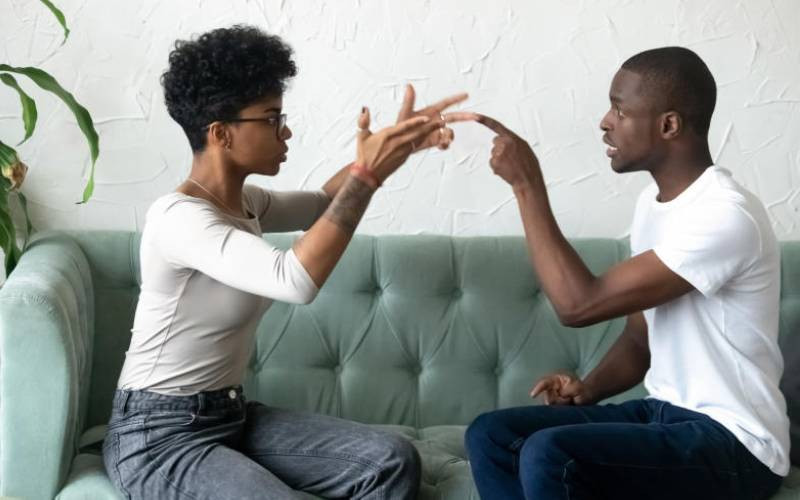
Guilt is an uncomfortable feeling that comes from the belief or impression that an individual has violated a personal value in thought, word or deed. Guilt is generally experienced as a result of abuse, infidelity, cruelty, and other unfair behavior in intimate relationships.
Guilt can be used to influence people both for positive or negative consequences. It is an important social factor, and is good since it encourages individuals to become more considerate, empathetic and provokes the conscience for the call to action for corrective measures and self-regulation.
Guilt has a way of permeating the initial hurt and undermining emotional health and general wellness. If not guarded, it negatively affects the individual and the significant others in their relationships.
When an individual suffers guilt, it is not uncommon to blame significant others for the failures as well as feelings. This blame serves as a way of reducing one’s own emotions of shame and guilt in holding another responsible for the action causing the guilt.
Many times, a partner who is suffering from guilt because of infidelity will accuse their spouse for their actions. Blaming them relieves their emotional guilt in justify their act. While this blame game relieves their stress and pain temporarily, it regrettably invites anger, frustration and resentment from their partners which pushes the relationship further from emotional health.
The scenario becomes interesting, nobody takes responsibility for their actions and that invites conflict.
When some individuals suffer spousal betrayal, they experience a volcano of emotions while others experience intense or dull pain, numbness and are in denial for a long period of time. This is their way of coping and maintaining sanity.
Guilt can become overwhelming when one focuses too much on the self, applying self-blame and shame.
Instead of focusing on the self, it may be helpful to become compassionate, considerate on self and the other parties. By all means have good, open non-judgmental communication and purpose to deal with the matter in an amicable manner.
Guilt can be a great source of pain and anguish and should be guarded and controlled all times. When guilt becomes constant and takes centre stage, consuming and holding one captive, then, it takes over and can cause stress, anxiety, and eventually depression.
Signs to watch out for are high levels of anger, resentment, and low energy. When guilt does not motivate an individual to do good then I would say watch out.
Allow me to offer you some tips to combat your guilt feelings;
1. Recognize the kind of guilt
Guilt works best to help one grow and mature when behavior has been offensive or hurtful to others or themselves. When handled well, it provokes the moral conscious and builds however, it is possible to ignore guilt and when this happens, it can result to poor emotional and physical health.
2. Acceptance helps
When one accepts that they did something wrong and chooses to apologize or make the best of the situation with themselves and their significant others, it helps them make amends as they acknowledge their mistakes and move on.
3. Learning from the mistake
Guilt gets our attention and enables us to learn from the feelings, correct the action and situation and learn from it. When one learns from the consequences of their actions and corrects it, it is unlikely that they will be caught up with the same again. However, several continue to repeat the same behavior and achieve the same results.
4. Perfection doesn’t exist in anyone
Practice makes perfect, it does not matter how many times you fall, keep getting up and finally it will all come together. Perfection is a process and nobody can claim to be an expert. Do not engage in self-blame and bashing, it will not help; seek support and find an accountability partner.
5. Take responsibility
Do not blame others for your actions and do not let your guilt turn to shame. Take responsibility and seek help if necessary. Guilt is an emotion that is universal and dealing with the feelings is important for your emotional and physical health. Understand your triggers, and behavior that need modification. You deserve to thrive!
 The Standard Group Plc is a multi-media organization with investments in media
platforms spanning newspaper print
operations, television, radio broadcasting, digital and online services. The
Standard Group is recognized as a
leading multi-media house in Kenya with a key influence in matters of national
and international interest.
The Standard Group Plc is a multi-media organization with investments in media
platforms spanning newspaper print
operations, television, radio broadcasting, digital and online services. The
Standard Group is recognized as a
leading multi-media house in Kenya with a key influence in matters of national
and international interest.










